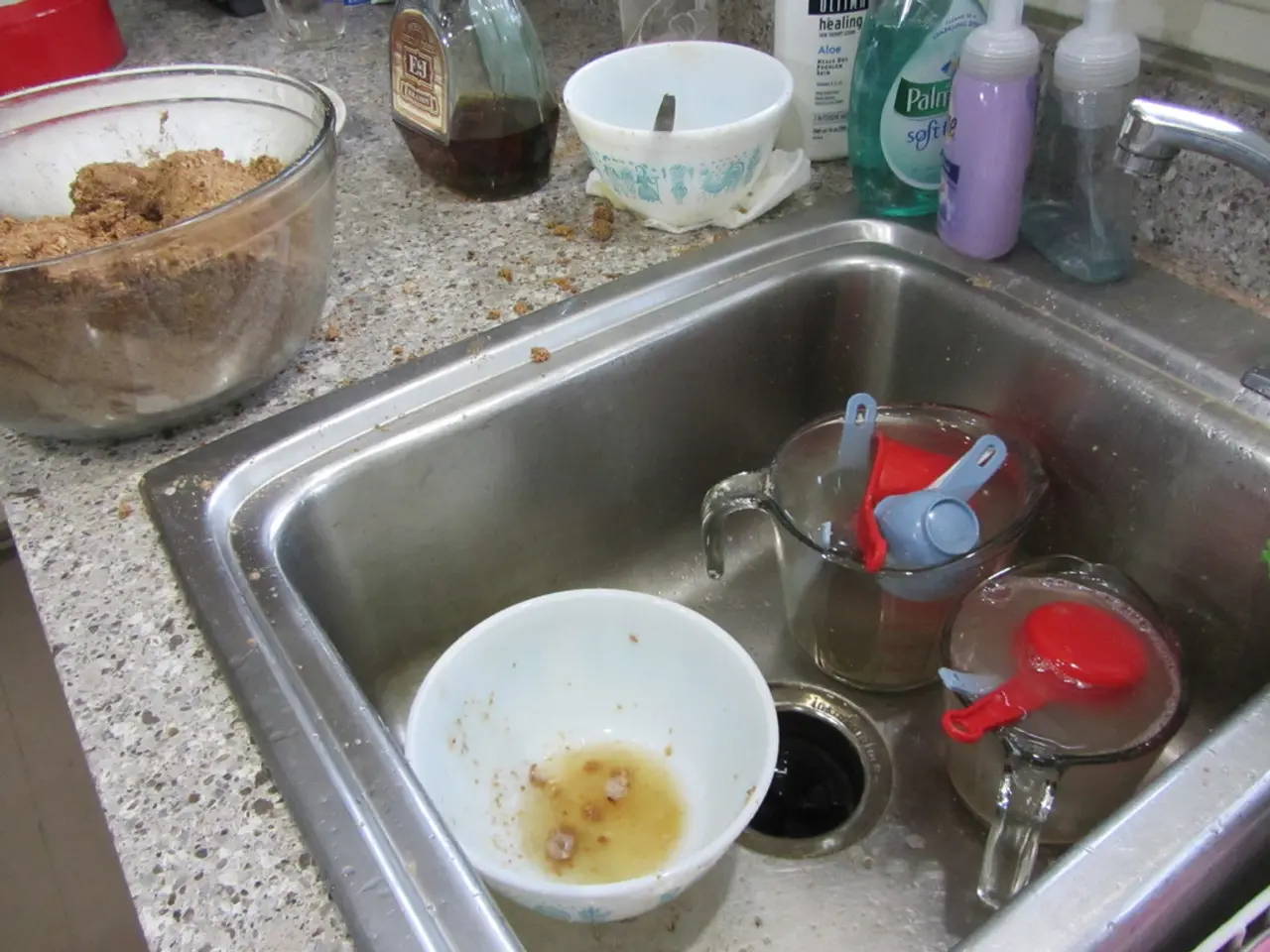Exploring Bipolar Disorder's Impact: The Empowerment Offered by Bipolar Chat and Advocacy Groups
Navigating life with bipolar disorder doesn't have to be a solitary journey. In our interconnected world, an array of digital spaces offers a lifeline for those seeking emotional support, understanding, and a sense of community—bipolar chat and online support communities. These virtual lifesavers can greatly help manage the ups and downs of bipolar disorder.
Bipolar disorder is a complex mental health condition characterized by extreme mood swings, ranging from manic highs to depressive lows. These fluctuations can drastically impact one's daily life, relationships, and well-being. While professional treatment is indispensable, social support plays a crucial role in keeping the condition in check. That's where bipolar chat and online support communities come in, offering a valuable resource for those grappling with the challenges of bipolar disorder.
The Advantages of Bipolar Chat
One of the most significant advantages of bipolar chat is its 24/7 availability and convenience. Unlike traditional support groups that meet at specific times and locations, online communities can be accessed anytime, anywhere. This constant availability is particularly beneficial during times of crisis or intense mood swings. For instance, someone experiencing bipolar manic texting can quickly connect with others who understand this behavior and offer immediate support [2].
Anonymity and reduced stigma are also key benefits of online interactions. Many people with bipolar disorder face stigma in their daily lives, making it difficult to open up about their experiences. In the virtual world of bipolar chat, users can remain anonymous, allowing them to share their thoughts and feelings more freely without fear of judgment or repercussions.
Connecting with others who understand the bipolar experience is invaluable. Participants find solace in knowing they're not alone in their struggles and can learn from others who have faced similar challenges. This shared experience provides a sense of validation and empowerment.
Bipolar chat rooms and forums also serve as platforms for exchanging coping strategies and treatment experiences [2]. Users can discuss the effectiveness of different medications, share insights on lifestyle changes that have helped them maintain stability, and learn practical tips for managing symptoms [2]. This peer-to-peer knowledge sharing can complement professional treatment and provide tangible advice.
Types of Bipolar Chat Platforms
Several types of bipolar chat platforms cater to diverse needs. Dedicated bipolar chat rooms are spaces specifically designed for individuals with bipolar disorder, often moderated to ensure discussions remain supportive and on topic [3]. Mental health forums with bipolar-specific sections are another popular option, offering resources for various mental health conditions while maintaining spaces for bipolar discussions. Social media groups and communities, such as Facebook groups or Reddit subforums, provide informal spaces for bipolar support. Mobile apps for bipolar support and chat are becoming increasingly popular, combining chat features with mood tracking tools, medication reminders, and educational resources [3].
Joining a Bipolar Chat Room
Begin your search for a suitable bipolar chat room by researching reputable bipolar support websites and platforms associated with recognized mental health organizations or recommended by healthcare professionals [3]. Evaluating the safety and moderation of chat rooms is crucial before joining. Look for clear guidelines, active moderation, and privacy policies that protect users' information.
Creating a profile is typically required for participation. Many platforms allow you to use a pseudonym to maintain anonymity. As you begin engaging in conversations, follow the established etiquette and guidelines of the chat room.
Maximizing the Bipolar Chat Experience
To ensure a positive and beneficial experience in bipolar chat communities, set personal boundaries, protect your privacy, and remember that while these communities offer emotional support and practical tips, they should not replace professional treatment. Balancing online support with regular therapy and medication is vital.
Taking care of oneself is crucial when offering support to others. If you find yourself overwhelmed, it's okay to step back and focus on self-care. Keep an eye out for warning signs and seek help when needed, particularly during sensitive periods such as navigating a bipolar breakup, where emotions can be intense.
The Future of Bipolar Chat and Online Support
The landscape of bipolar chat and online support is constantly evolving with innovations in technology. The integration of professional moderation, peer support, anonymity, and telehealth services is enhancing the quality and safety of these communities. Research and data collection using anonymous chat data could also lead to new treatments and interventions [4].
However, addressing accessibility challenges for diverse populations, including those with language barriers, disabilities, or belonging to underserved communities, is important for the future growth of these virtual support networks [4].
In conclusion, bipolar chat and online support communities offer a powerful resource for individuals dealing with bipolar disorder. These platforms provide a supportive, understanding, and accessible space that complements professional treatment and enhances overall well-being. Whether you're seeking advice on finding the perfect gifts for bipolar individuals or looking for support during a difficult time, online communities can provide valuable insights and companionship.
As we look to the future, the potential of these digital support networks to positively impact the lives of those with bipolar disorder is immense. If you're living with bipolar disorder or supporting someone who is, consider exploring the world of bipolar chat. Remembering to combine the power of community support with proper treatment, individuals with bipolar disorder can find hope, understanding, and a path towards better management of their condition.
References
- National Institute of Mental Health. (2020). Bipolar Disorder. Retrieved from https://www.nimh.nih.gov/health/topics/bipolar-disorder
- Naslund, J. A., Aschbrenner, K. A., Marsch, L. A., & Bartels, S. J. (2016). The future of mental health care: peer-to-peer support and social media. Epidemiology and Psychiatric Sciences, 25(2), 113–122.
- Bauer, R., Bauer, M., Spiessl, H., & Kagerbauer, T. (2013). Cyber-support: an analysis of online self-help forums (online self-help forums in bipolar disorder). Nordic Journal of Psychiatry, 67(3), 185–190.
- Highton-Williamson, E., Priebe, S., & Giacco, D. (2015). Online social networking in people with psychosis: A systematic review. International Journal of Social Psychiatry, 61(1), 92–101.
- Naslund, J. A., Aschbrenner, K. A., McHugo, G. J., Unützer, J., Marsch, L. A., & Bartels, S. J. (2019). Exploring opportunities to support mental health care using social media: A survey of social media users with mental illness. Early Intervention in Psychiatry, 13(3), 405–413.
- The 24/7 availability and convenience of bipolar chat rooms provide immediate support during times of crisis or intense mood swings.
- Anonymity and reduced stigma in bipolar chat offer a safer space for users to share thoughts and feelings without fear of judgment.
- Connecting with others who understand the bipolar experience in chat rooms can provide a sense of validation, empowerment, and peer support.
- Bipolar chat rooms can serve as platforms for sharing coping strategies, treatment experiences, and exchanging practical tips for managing symptoms of bipolar disorder.






